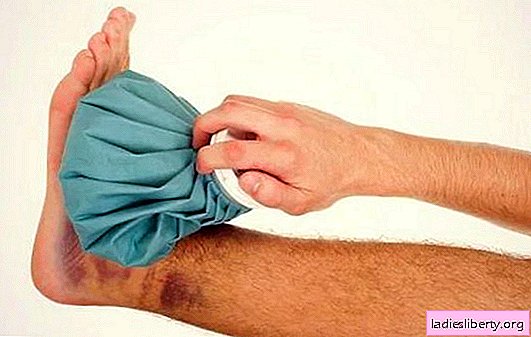
Holidays February 8
Day of Russian science
On February 8, 1724, by order of Peter the First, the ruling Senate issued a special decree, thanks to which they founded the Academy of Sciences. In 1991, this Academy was called the Russian Academy of Sciences. The Day of Russian Science, by presidential decree, was introduced in 1999. The basis of the holiday was timed to the 225th anniversary of the Russian Academy of Sciences. Many great scientists work in the Academy of Sciences; their names are written in gold letters in world history of science. Thanks to the Academy of Sciences, we are familiar with the theory of the biosphere and the noosphere, launched the first artificial satellite of the Earth, and developed and built the first nuclear power plant in the world. Nowadays, all scientific developments are underway, which will soon surprise humanity. It is known that about fifteen Russian scientists were awarded the Nobel Prize. In 1904, Academician Pavlov received this award, he is the first Russian to receive the Nobel Prize. In 1908, the Nobel Prize was awarded to Mechnikov, in 2010, Novoselov received the most prestigious scientific prize in the world. To date, the Russian Academy of Sciences, a multidisciplinary structure that combines nine departments of various subjects. In different regions of the Russian Federation there are scientific centers and branches that work under the direction of the Academy. The number of workers of employees exceeds 55 thousand people.
Slovene Culture Day, Presherna Day
Franz Preshern - the great Slovenian poet and creator of the Slovenian literary language. He was the son of a farmer and grower on the farm with his father. At the insistence of the mother, Franz received a basic education. But the mother dreamed that her son would become a priest, but Franz didn’t get carried away and he went to Vienna to study jurisprudence. This would allow him to continue to take office as an official in Lublin. In the mid-1824s, Preshern began writing poetry and almost immediately became famous as a talented poet. After receiving a law degree, Franz tried to enter the civil service, but failed. In the end, he got a job as an assistant attorney in Lublin. In the 1830s, the poet experienced a string of deaths of people close to him, and he also knew the whole tragedy of unrequited love. Experiencing the pain of loss and unhappy love, the poet began to drink heavily, but even while intoxicated, he continued to write unique poetic works. In 1844, the Toast was written, the basis of the Slovenian hymn. In 1846, Preschern finally took up his own advocacy, and his personal life improved, and he married two sons. However, a well-to-do and peaceful life came to the outstanding poet a bit late, soon Preshern learns that he has cirrhosis of the liver, this diagnosis at that time was a death sentence. The great Slovenian poet died on February 8, 1849. All his life he worked and argued that the Slovenian language and culture are worthy members of the European Community. The poet’s death is celebrated in Slovenia as a celebration of Slovenian culture and language.
Day of the military topographer
February 8 in Russia is the Day of the military topographer. In 1812, the Order was approved for military topographic activity. A special military structure has changed its functions and status many times. In our time, this organization is considered the military topographical directorate of the General Staff of the Russian Army. Topographic science is, first of all, the creation of military geographic and topographic maps of the terrain, which are necessary both in the military and civilian spheres. The first atlas of Russia, though in manuscript form, is considered a topographic map of Siberia, created by the Russian geographer Remezov. The map was presented to Emperor Peter the Great. Ten years later, the army already had an order that supplied the military units with the necessary military maps. In addition, the king organized a mathematical and navigational school in Moscow, where astronomy, geodesy and topography were taught. The first specialized educational institution in the world where cartographers and topographers were trained was founded in Russia. Topographic service at all times was considered - a secret, because any battle began with a map. And in order to obtain military maps of the enemy, so even with the plan of military operations, many intelligence officers risked and gave their lives. It would seem that a simple piece of paper, with a map of the area printed on it, which may depend, but much depended, sometimes the fate of the whole nation. On this day, all the topographers of our fatherland accept the words of gratitude for their important work for the benefit of the fatherland.
February 8 in the national calendar
Theodore Commemoration
On February 8, Theodore Stratilates is revered, who was a Christian saint, he was honored as a great martyr. According to historical data, Theodore was born in the third century in Asia. He served in the army of the emperor, but because of his faith he was persecuted and died a painful death. Theodore was also famous because he was able to kill a monstrous serpent that threatened people. Nowadays, Theodora is revered as the patron of the Orthodox army. It is believed that on this day the dead are yearning for their loved ones and wander the earth. There was a ritual to calm them down, it was necessary to pour ashes on the grave and say: “Do not walk around the yard, orphan souls! And go to the western side, there you will find eternal peace”. On the day of February 8, people prayed to Theodore to heal them from stomach pain, and he had a chest disease. This day has another name, it was called “the pea day”. The weather was predicted for peas: if dry peas rolled on a dish and rang, it would mean a bitter cold, and if it rode silently, it would be a quiet snowfall. People who were born on this day, on Feodor’s holiday, cooked and ate pea porridge with pleasure, it was believed that peas would give them strength for the whole of the next year. Fyodor was also called Studite, the peasants said: "Fyodor Studites the earth to my mother the students". In Russia, it was believed what this day would be - this will be spring.
Historical events of February 8
February 8, 1724 Peter I founded the Russian Academy of Sciences and Arts.
Taking care of the scientific and technical progress of Russia, Peter I, as he could, contributed to the development of national science. On February 8, 1724, the first Russian Academy of Arts and Sciences was founded by the order of the Emperor. Not only youths of the nobility, but also other lower classes, even peasants, could study in a new higher educational institution. For diligent teaching and achievements in the sciences and art, the king showered the gifted youths with his good graces. The Academy was instructed to organize and conduct research in the field of various human knowledge: chemistry, biology, natural science, physics, etc. A huge contribution was made by the Academy to the creation of the state museum of unusual exhibits - Kunstkamera. The Academy gave rise to the great Petersburg museums, dozens of them have reached our time. Outstanding Russian scientists came out of the walls of the Russian Academy: Mikhail Lomonosov, Pavlov, Mendeleev and others. These great scientists are known to the whole world, because, the discoveries they made in science advanced the development of human civilization far ahead. Since its inception, the Academy has published millions of print editions on various scientific topics. The activities of the Academy brought the Russian Empire to a new level of scientific and technological progress.
February 8, 1837 there was a duel between Pushkin and Dantes
February 8, 1837, on the outskirts of St. Petersburg, near the Commandant's cottage, a duel between Alexander Pushkin and Georges Dantes happened. As a result of the incident, Pushkin was seriously injured and died two days later. As contemporaries wrote, the reason for the duel was anonymous letters in which allegedly the infidelity of the wife of Alexander Sergeevich. Suspicion in the letters fell on the Dutch diplomat Georges Dantes, who, as it were not out of his will, but on the fate of the case met with Pushkin's wife, at one of the festive balls. Pushkin was not a supporter of the secular, court life, he preferred all this home comfort and literary work. Pushkin's wife, Natalya, loved the lavish balls and favors of the gentlemen, so she allegedly could not resist the beauty of Dantes, who at that time was famous for an excellent and courteous lover. Tokmo, having learned about the content of the letters and the gossip about St. Petersburg concerning his family, Pushkin sent a challenge to Dantes to Dantes, but this time the duel did not take place. First, Dantes made an offer to Pushkin’s wife’s sister, which in itself eased psychological stress, and second, Pushkin had an audience with Emperor Nicholas I, who greatly admired Pushkin’s literary talent. However, relations with Dantes did not improve, and the squabbling and gossip spreading again exacerbated the contradictions of two young and proud nobles. In 1837, Pushkin sent a very offensive letter to Dantes' house, which provoked Dantes to an armed confrontation with Pushkin. Soon the duel itself took place, Pushkin was seriously wounded in the stomach, Dantes escaped with a wound to the arm. Two days later, the great poet died of diffuse peritonitis at home. Dantes recovered from his injury and lived a long and eventful life.
February 8, 1838 Morse introduced the electromagnetic telegraph apparatus
American artist and inventor, the first president of the American Academy of Sciences. He traveled to Europe, where he studied the work of great artists and sculptors. Returning to the United States on a ship, Morse was keenly interested in how the ship works and how it is being operated and controlled. From one of his companions, he learns about the ability of a current to act on a magnet and instantly travel along wires for a long distance. The art historian was excited about the idea of using an electromagnetic pulse for transmitting signals at a large distance from the transmission source. Morse did not have a special technical or physical education, he was driven by a keen interest in invention. Using the tools at hand and working for ten years, he managed to create a prototype of the telegraph apparatus. In 1837, he demonstrated the capabilities of his invention, he managed to transfer a telegraph message to a distance of 500 meters, but it was not possible to read the telegram, because his system had no symbols. Then Morse developed a special code signals, in the form of long and short electromagnetic pulses, so the famous "Morse code" appeared. On February 8, 1838, Morse demonstrated the possibilities of a new communication invention and transmitted a readable telegram over a distance of 15 kilometers.
February 8, 1929 the word helicopter is entered into Russian
In the late 1920s, a new word appeared in the Russian language - helicopter. So was named an aircraft designed and built by aircraft designer Nikolai Kamov. The inventor named his Kaskr-1 helicopter, which became the first Soviet prototype of a modern helicopter. And yet it was significantly different from the modern helicopter, then people called these vehicles also “autogyros”. Like the helicopter, the "autogyro" was also equipped with the main rotor, which served as a vehicle for the take-off of the vehicle, however, the autogyro rotated the autorotation, which was developed thanks to the action of aerodynamic forces. However, the "gyro" was usually equipped with a so-called "pushing" or launching propeller, and the screw provoked the "gyro" on a horizontal lift. In the initial period, the first prototypes of helicopters were called helicopters (by the way, in the Ukrainian language, the word helicopter sounds like “gvintokril” or “gel_kopter”). Some historians believe that the word helicopter could come from either French - “gyro ...”, or from the English abbreviation “Vertol”. In any case, in our time, any student knows that a helicopter is an aircraft of vertical take-off and landing. In 1959, the Soviet government acquired a series of American helicopters Sikorsky S-58 and Vertol V-44, from which time the word helicopter finally entered the lexicon of Soviet residents.
February 8, 1963 military coup in iraq
On 8 February 1963, a military coup took place in Iraq that overthrew the regime of Abdel-Kerim Kasem, as a result of which the Baath Party seized power. The Baath leader, General Ahmed Hassan al-Bakr, took over as prime minister, and his party comrade, Abdel-Salam Aref, became president of Iraq. The authoritarian, or rather criminal style of rule of Kasem led to the coup. Abdel Qasem established the most brutal dictatorship in the country, he practically destroyed the opposition, thousands of people were imprisoned and executed. Realizing the impossibility of continuing the existence of Kasem’s power and showing particular concern for the fate of the state, a number of Iraqi army officers decided to overthrow the bloody regime. Because of the danger of disclosing a conspiracy, it was transferred several times, and yet, on the eve of the coup itself, Kassem nevertheless learned about the impending overthrow, but it was already late, the conspiracy machine was started and operated at full capacity. The rebellion began early in the morning on February 8, 1963, at which time, on the threshold of his own house, Iraqi Air Force Commander Jalal Avkati was killed. The tanks and armored vehicles of the rebels captured the radio station. Fighting continued between the rebels and the Kasem troops for several days. The last shelter of Kasem was the Ministry of Defense, in which the battles were especially bitter. Understanding the hopelessness of the situation, Kasem decided to surrender to the rebels, but demanded a promise from them to save his life. The leaders of the rebellion promised to save the life of the dictator. Qasem, together with the generals loyal to him, surrendered to the victors, he was immediately arrested and taken under heavy guard to a television studio on central television. A situational, or rather an improvised, trial of a dictator was organized there. A court meeting found Kasem and his accomplices guilty of state crimes, they were immediately shot, live. The new authorities soon began to destroy all supporters of the former regime. A new dictatorship was established in the country, which, however, did not last long and was overthrown by regular rebel forces.
February 8 were born
Jules Verne (February 8, 1828 - March 24, 1905), French science fiction writer
Jules Verne was born on February 8, 1828 in Nantes, France. It is known that his father was a prosperous lawyer. Vern, following in the footsteps of his father, went to Paris, he wanted to get a higher education and become a lawyer. His uncle introduced Jules to famous writers, and under their influence the guy began to write plays. When Jules turned 22, his comedy "Broken Straw" was staged in Paris. Vern was very busy writing, but this did not prevent him from obtaining a law degree. He wrote his first fantastic story in 1851, it was called "Balloon Journey". Later, Vern got acquainted with Pierre Herzel, who was a publisher and children's writer, he began to publish novels written by Jules Verne. This fruitful collaboration continued until the end of Vern’s literary career. His novels quickly became very popular and won world fame. When writing his novels, Vern tried to be realistic in details, because of this he studied a lot of scientific information. Jules Verne successfully combined the science, inventions and kinetics of amazing adventures in his works.Gradually, part of Verne's fiction becomes reality. Vern wrote his major works by 1880. In his later novels, the author’s pessimism about the future of human civilization began to be read more clearly. In 1885, Verna had an attempt on his life. A paranoid nephew shot at him and got into the leg, after which the writer became disabled. Jules Verne died in Amiens on March 24, 1905. Throughout his life, the author has written about 65 novels, more than 20 different narratives and short stories, about 30 plays, and a small number of documentary and scholarly works. His wonderful books inspired many screenwriters and famous directors, and they made films for his wonderful works.
Vyacheslav Tikhonov (February 8, 1928 - December 4, 2009), theater and film actor
Vyacheslav Vasilyevich was born on February 8 in 1928 in the city of Pavlovsky Posad, in the Moscow Region. Vyacheslav's father was a mechanic and worked in a weaving factory, and his mother worked as a kindergarten teacher. When the guy was 13 years old, he entered a vocational school, where he studied the profession of a turner. When I finished my studies I went to work. After that, he worked at a military factory in his specialty, but dreamed of a movie. In 1945-1950, Tikhonov diligently studied at VGIK, and in the same period for the first time starred in the film, which was shot by Sergei Gerasimov “Young Guard”. The actress Nonna Mordyukova became the wife of Tikhonov. In 1957, Tikhonov played the role of tractor driver Matvey in the film, which was called “It was in Penkovo,” this successful role brought the absolute recognition of the audience. Two years later, Tikhonov starred in the movie "Emergency". These Soviet films gave impetus to the further development of Tikhonov's acting skills. In the following years, Vyacheslav actively acted in films, played a variety of different roles, often these were stellar roles. In 1976, Tikhonov received the State Prize of the RSFSR named after the Vasilyev brothers for the role played by Stirlitz. In 1973, the great actor was given the title - People's Artist of the USSR, and in 1981 - the Hero of Socialist Labor. Tikhonov was awarded the Order of Lenin and the October Revolution, as well as "For services to the Fatherland" III degree. The famous Soviet actor left this world when he turned 81, it happened on December 4 in 2009.
Irina Muravyova (February 8, 1949 ...), People's Artist of Russia
Irina was born in Moscow, February 8, 1949 in Moscow. After graduation, she tried to enroll in a drama school, but failed in the competition. In 1967 she entered the drama school-studio at the children's theater. She studied with renowned and reputable theater teachers. After studying, she worked as an actress in a children's theater, and in 1771 she moved to the theater of the Moscow City Council, where she worked for 20 years, until 1991. In parallel with theatrical activity, the actress studied at the evening department of the theatrical institute named after Lunacharsky. Her first successful work in cinema is the role of Nadezhda Klyueva, in the film "The most charming and attractive." Irina Vladimirovna starred in dozens of films and each of her films is a cinema decoration. She plays, openly, sincerely and extremely frankly. For the famous role of Lyudmila in the film “Moscow Doesn't Believe in Tears”, the actress was awarded the USSR State Prize. Since 1993, Irina Vladimirovna is the leading actress of the State Academic Theater in Moscow. In 1993, she was awarded the title of People's Artist of the Russian Federation. Continues to be shot and to the present.
Dmitriy Mendeleev (February 8, 1834 - February 2, 1907), the great Russian scientist
An outstanding Russian scientist, was born on February 8, 1834, in the vicinity of Tobolsk, in an educated, teacher's family. Shortly after the birth of the boy, Mendeleev’s father died and all the care for the children fell on the fragile maternal shoulders, and after all the children in the Mendeleev family were 14. At fifteen, Dmitry successfully graduated from high school. Mama Mendeleev did everything possible so that the boy continued his education. In 1850, Dima entered the Moscow Pedagogical Institute. At the age of twenty-one, young Mendeleev brilliantly graduated from the institute, and his thesis “on isomorphic phenomena” was immediately recognized as a thesis for the degree of candidate of science. In 1857, Mendeleev, became an assistant professor at St. Petersburg University. About two years spent abroad, where he was an intern at universities in France and Germany. In 1859, the scientist designed the pycnometer, a device that determines the density of a liquid. In 1960, determined the critical boiling point of liquids. In 1863, the scientist publishes the textbook "Organic Chemistry", awarded the Demidov Prize. In 1965, Dmitry Ivanovich defended his doctoral dissertation and became a professor. He published more than five hundred printed works and was the author of grandiose studies in chemistry, physics, biology, and mineralogy. The scientist developed the basis of the principle of separation of solutions, which helped quickly and on an industrial scale, fractionally separate oil. Mendeleev made dozens more important discoveries for science, but his greatest genius was the discovery of the periodic system of chemical elements. This discovery was not only the most significant event in chemistry, it was the greatest achievement of a scientist for all of world science. It turned out that the periodic table is a peculiar basis of chemistry, as a science, the whole scientific human paradigm begins with it.
Roman Kostomarov (February 8, 1977 ...), Russian athlete, dancer
Roman was born on February 8, 1977 in Moscow. He joined figure skating at the age of nine, his first coach was a teacher L.V. Karavaeva, and her daughter Catherine became a dance partner. Together with Katya, Roman worked for about ten years, with her he won the world junior championship. Then Kostomarov created a tandem with Tatyana Navka and moved to the USA. However, with a new partner, Roman has not worked for more than a year. Anna Semenovich became his next figure skating partner, however, in tandem with her, Kostomarov did not achieve any outstanding sporting results. The field of which the athlete decided to again offer Tatiana Navka to perform together The figure skater, agreed to a new cooperation, Navka’s husband, A. Zhulin, became their coach. In tandem with Tatyana Navka, Kostomarov won the title of world champion in 2005, and in 2006, the pair became Olympic champions at the Winter Olympics in Turin. Currently, Kostomarov has the title of Honored Master of Sports, is filmed in various television shows and in movies.
Dmitry Nelyubin (February 8, 1971 - January 1, 2005), cyclist, Olympic champion
Dmitry Nelyubin, born 02/08/1971 in Leningrad. Dima's road to big-time sports was not easy, he achieved everything himself, thanks to constant and hard training. For himself, he chose his favorite sport of cycling, especially over long distances and at high speed. Back in Soviet times, Dmitriy noticed eminent Soviet coaches, he was poisoned at the summer Olympics in Seoul, in 1988. In the team of riders, Dmitry won the Olympic gold medal for the USSR. And in his homeland he was awarded the title of Honored Master of Sports. After the Olympics, Dima continued the competition for about ten years, but in 1997 he retired from the sport. In 2005, Dmitry died as a result of an attack on him by a gang of robbers, buried in St. Petersburg. In 2008, the investigation announced the disclosure of the crime and the detention of all three criminals. Currently, the perpetrators are serving various prison sentences. The motives for the murder are still not disclosed.
Name Day February 8
Arkady, David, Joseph, Maria, Fedor











